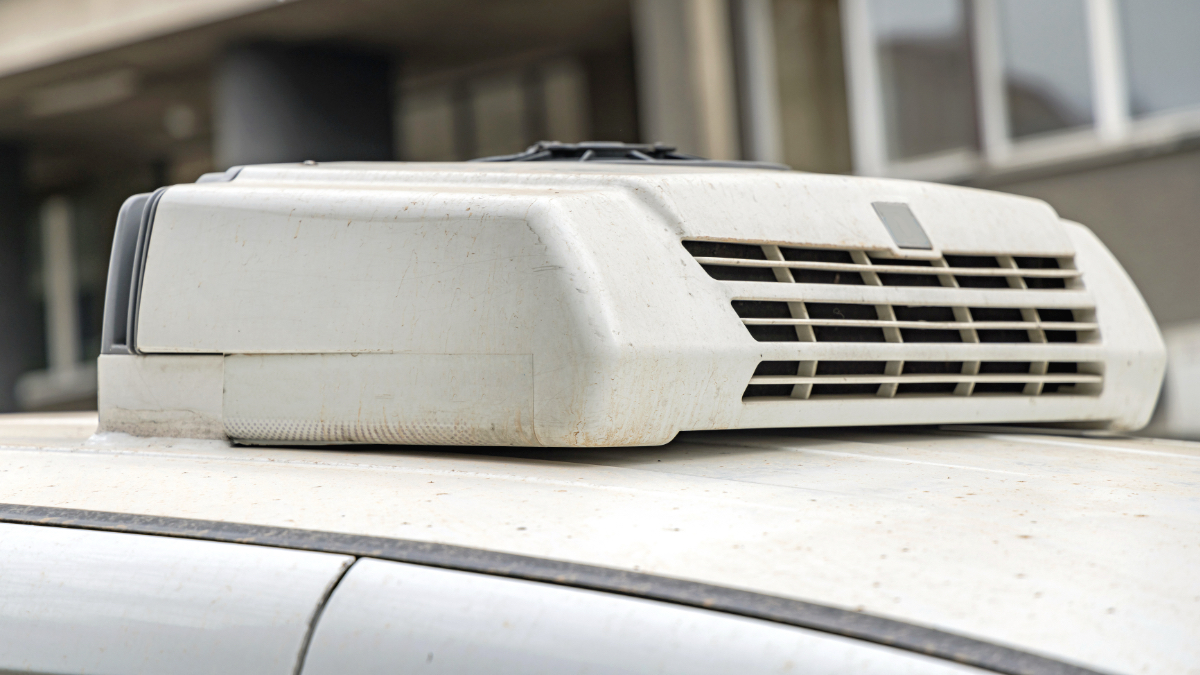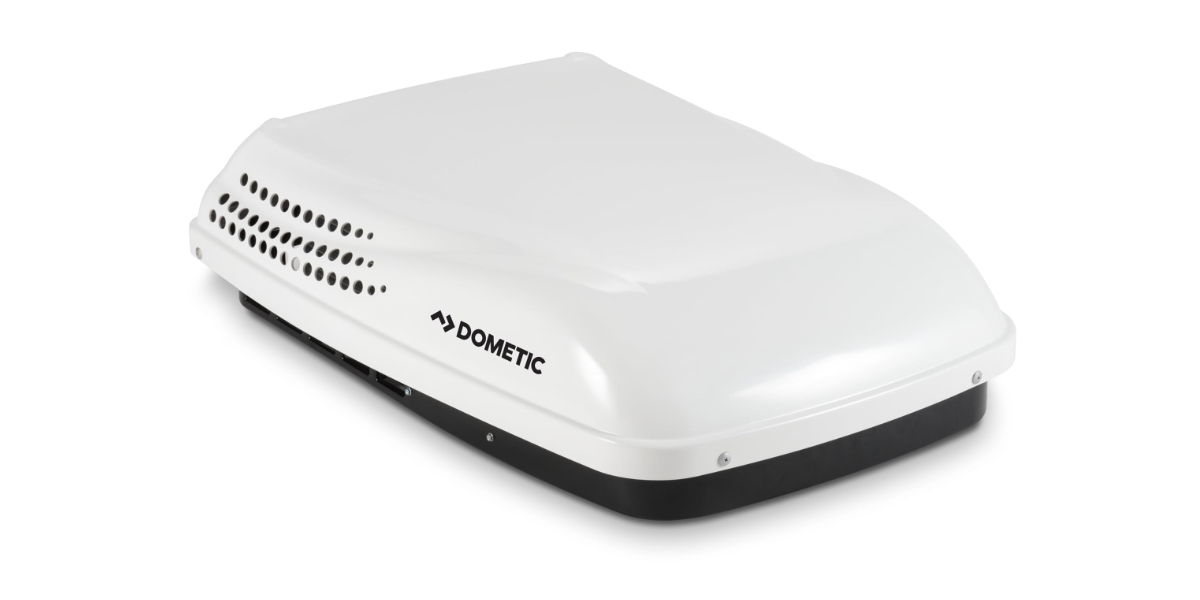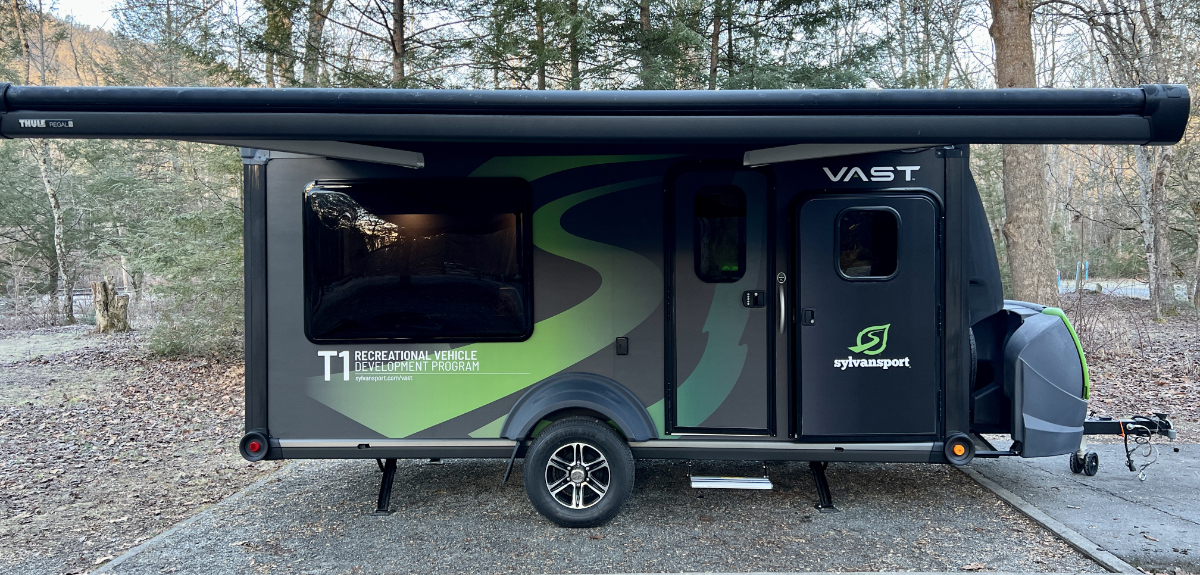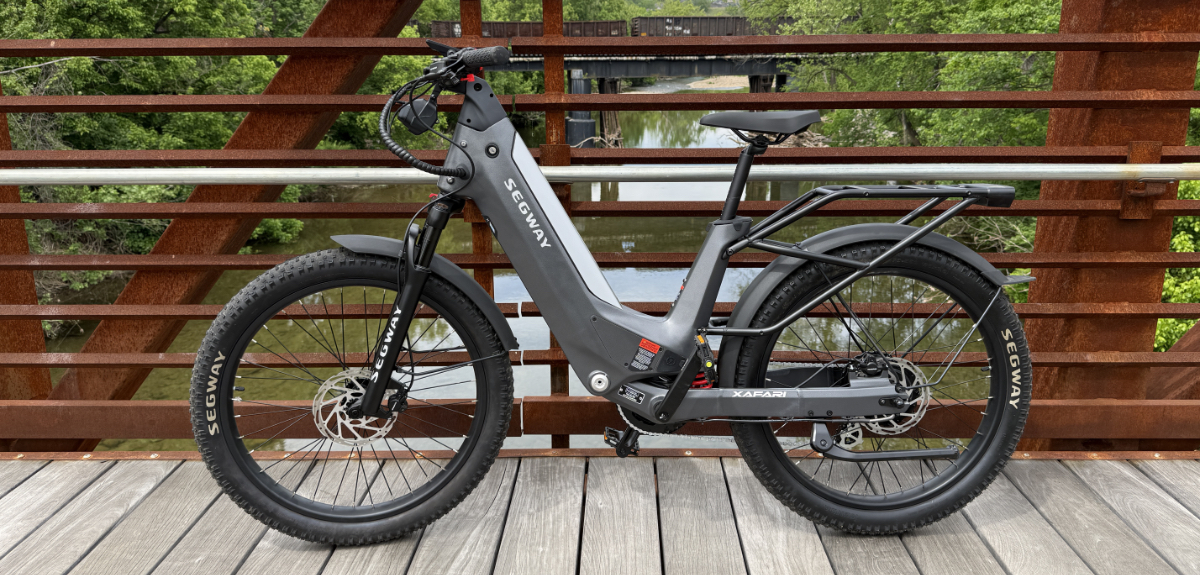What are the Advantages of an RV Heat Pump?
This handy piece of tech can make your rig more comfortable in both cold and warm conditions.
Image Caption: Photo Credit: AscentXmedia/Getty
Take a closer look at the spec sheet of many modern RVs, and you may notice an increasing number of vehicles that include an air conditioner with a heat pump. This innocuous feature often goes overlooked but could play a crucial role in keeping your rig comfortable in cold conditions. So what is an RV heat pump, and how does it work? Read on to find out.

Photo Credit: Baloncici/Getty
What is an RV Heat Pump?
While it may seem counterintuitive, a heat pump is not part of an RV’s furnace, but is instead linked to a rig’s air conditioning units. As its name implies, a heat pump circulates air to help regulate the interior temperature of the vehicle. In warm conditions, it improves the efficiency of the A/C unit, helping to keep temperatures cooler. And when outdoor temps drop, it warms the air instead.
How Does an RV Heat Pump Work?
When cooling the interior of the RV, a heat pump pulls warm air out of the vehicle and expels it the outside. This allows the A/C to work faster and more efficiently, while maintaining a comfortable temperature. Conversely, when warming the interior, the pump works in reverse. The device actually pulls heat from the outside air and circulates it into the vehicle, keeping it warmer as a result.

Photo Credit: Dometic
Advantages of an RV Heat Pump
The biggest advantage of an RV heat pump is that they are much more energy efficient than the propane furnaces found in most models. Very little power is needed to circulate the air, and the A/C’s compressor is used to regulate the temperature up or down. This is especially true if you have multiple air conditioners, which provide independent climate zones and help further regulate the interior temperatures of larger rigs.
Disadvantages of an RV Heat Pump
While a heat pump is a great addition to any RV A/C unit, there are a few downsides to their use. Most notably, air conditioners and their heat pumps are run by electricity, so a sustained power source is required. When plugged in at a campground, this isn’t a major issue, but if you’re camping off-grid, running the A/C can quickly deplete your house batteries. In those situations, a propane furnace is a more sustainable option for staying warm on extended outings.
It should also be noted that as temperatures drop, heat pumps become increasingly less effective and efficient. These devices work best when outside temperatures are about 50ºF and above. And when the mercury drops below 40ºF, it is probably a good idea to switch over to your propane furnace.
Hopefully, this gives you a better understanding of what a heat pump is and why you might want one in your rig. New A/C units with heat pumps installed are quickly becoming the standard, which means future vehicles will likely include them by default. That’s good news, provided you understand their strengths and limitations, and how they can keep you more comfortable at the campsite.

Kraig Becker is a writer in the RV, outdoors, and adventure travel space. Over the course of his career he has contributed to such outlets as Popular Mechanics, Outside Online, Business Insider, TripSavvy, Digital Trends, GearJunkie, The Adventure Blog, and countless others. An avid runner and cyclist, he enjoys camping, hiking, mountain biking, kayaking, and just about any other outdoor activity. His travels have taken him to seven continents and on many amazing adventures.




